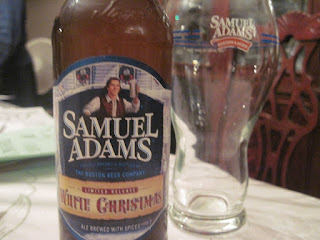The following is a brief summary of thoughts said over by R' Frand on the parsha this evening. I have attempted to reproduce these vorts to the best of my ability. Any perceived inconsistency is the result of my efforts to transcribe the shiur and should not be attributed to R' Frand.
The first pasuk of this week's parsha states that Yisro heard all that had occurred. Rashi quotes a gemara in Zevachim which asks what did Yisro hear? Rashi answers that Yisro heard the splitting of the sea and the war with Amalek.
R' Frand asked three questions about this: The first question was - why was Yisro the only one who came after hearing these things? Didn't the whole world hear?
R' Frand next noted that Rashi states that Yisro had seven names. One of these names was Yeser, because through Yisro a parsha was added in the Torah. In recognition of this, a letter was added a letter to his name, a vuv. But why was the letter vuv added as opposed to any other letter?
R' Frand then quoted a Zohar which states that vuv is the letter of truth. The Zohar made reference to the story of when the spies hid out at Rachav's house she asked for a chesed in return. The pasuk says the chesed will be an "os emes" and the Zohar explains that it is vuv.
R' Frand said that we see the vuv is the letter of truth based on the perek of Tehillim which talks about when Dovid acted like a crazy man to fool Avimelech. The perek (Ch 34) is written in the order of the alphabet but lacks a pasuk for vuv because it is the letter of truth.
R' Frand then quoted the Sefer Darash Mordechai to answer the three questions. He quoted the Medrash which states that when Hashem said the Aseres Hadibros, the world stopped. Everything was silent and not even a dog barked. The people of the world came to Bilaam and asked why is this happening - is there another flood coming? Bilaam responded - Hashem L'Mabul Yashav - there won't be another flood. But maybe there will be a flood of fire? Bilaam responded - Vayeshev Hashem Melech L'Olam. The people asked but what is going on? Bilaam said that Hashem has a great treasure in his storehouse which he is giving to the Jews - Hashem Oz L'Amo Yitain. The people said - if that is the case - Hashem Yivarech Es Amo BaShalom - the Jews can have it, just leave us alone.
This is what differentiated Yisro from the people of the world. Once they found out the world was not going to be destroyed, they did not care or want to know what was going on. But while they ignored the events of the world, Yisro connected the dots and it led him to Moshe. This is why the vuv is the letter of emes - it is the letter of connection the vuv hachibur. Yisro saw the connections and it brought him together with the Jews.
R' Frand also brought a proof from the end of Megillas Esther. The last perek talks about how after all the events had ended, Achasverosh imposed a tax. This is the one time in the megillah that Achasverosh's name is spelled without a vuv. Why? Because he did not see the connection. After all that happened, the only thing that mattered to him was imposing a tax. Because he did not see the miracles and was just wrapped up in himself.
R' Frand finished by quoting a story about R' Gifter when he was travelling from America to Europe to learn in Telshe in the 1930s. R' Gifter traveled to Europe on a boat and his cabin was in the steerage section. One night there was a dance held on a floor above R' Gifter's cabin. At some point during the night, there was a great storm and they all stopped dancing out of panic about whether the boat would sink in the North Atlantic. But after the storm passed, they resumed their dance as if nothing had happened. They did not see the message and did not connect the dots.
If you have seen this post being carried on another site, please feel free to click www.kosherbeers.blogspot.com to find other articles on the kosherbeers blogsite. Hey its free and you can push my counter numbers up!



